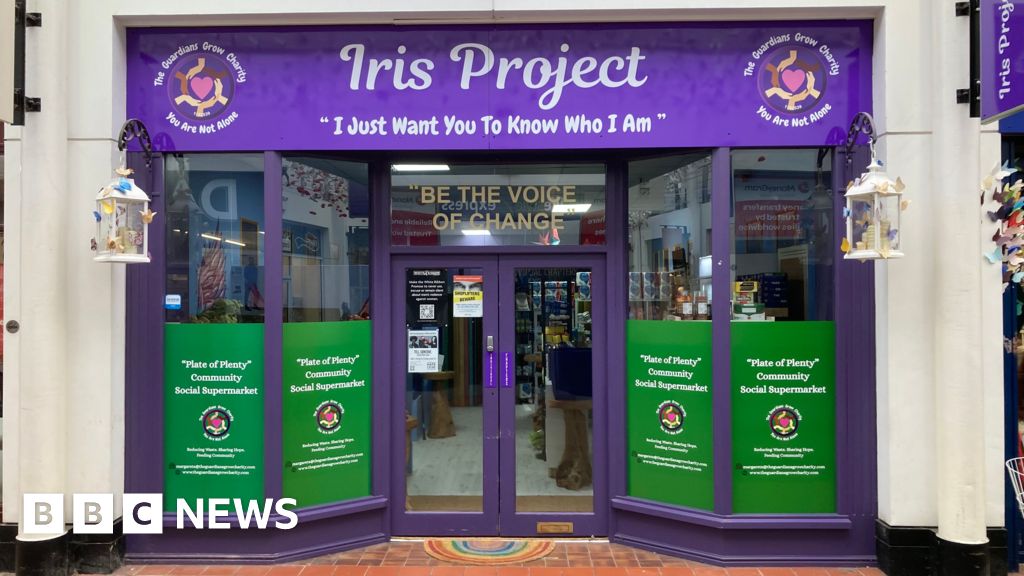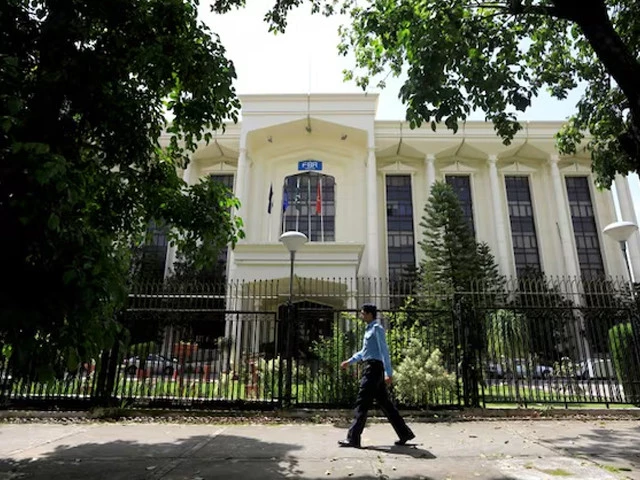Business
RFK Jr.’s vaccine panel weakens Covid shot recommendations, calling it an individual decision

Members of the Advisory Committee on Immunization Practices listen to a presentation about Covid-19 during an ACIP meeting at the Centers for Disease Control and Prevention in Atlanta, Sept. 19, 2025.
Alyssa Pointer | Reuters
Health and Human Services Secretary Robert F. Kennedy Jr.’s hand-picked vaccine panel on Friday weakened Covid shot recommendations in the U.S., advising that all Americans consult a health-care provider before deciding whether to receive the vaccine.
The 12-member panel, called the Advisory Committee on Immunization Practices, or ACIP, recommended that people 6 months and up receive vaccines based on so-called “shared clinical decision-making,” which refers to a decision process between a health-care provider and a patient or their guardian. The group also voted to emphasize that for those under 65, the Covid vaccine is most beneficial for those at high risk of severe illness from the disease.
The guidance breaks from previous years, where the committee recommended that all Americans ages 6 months and up receive an updated Covid shot.
While ACIP did not restrict the use of the Covid vaccine, the panel’s softer recommendation may further confuse Americans about whether to take a shot and make it more difficult for them to access one. ACIP sets recommendations on who should receive certain shots and which vaccines insurers must cover at no cost.
The panel’s chair, Martin Kulldorff, said it was his understanding that the new recommendation means that government-run insurance plans will still cover Covid vaccines. But it’s unclear if all private health plans will maintain coverage of the shots.
The CDC, whose latest director was ousted by the Trump administration earlier this month, still has to adopt the panel’s recommendations.
The vote is no surprise, as Kennedy appointed several vocal critics of mRNA Covid shots to the panel after ousting all previous members in June. During the meeting Friday, some members cast doubt on the safety and efficacy of Covid shots and mRNA technology, and questioned the reliability of data on hospitalization rates due to the virus.
Massachusetts Institute of Technology professor Retsef Levi speaks during an Advisory Committee on Immunization Practices meeting at the Centers for Disease Control and Prevention in Atlanta, Sept. 19, 2025.
Alyssa Pointer | Reuters
It also follows Kennedy’s other recent moves to change U.S. Covid vaccine policy, which have created new hurdles for some people to access vaccines, including prescription requirements in certain states. The CDC dropped Covid shot recommendations for healthy children and pregnant women, and the Food and Drug Administration approved new Covid jabs with limits on who can get them.
The ability to get vaccines may vary by state: In a break from federal guidelines, four Democratic states on Wednesday recommended that broad swaths of the population receive an updated Covid shot, including “all who choose protection.” Still, the new recommendations could weaken vaccination rates against the virus and heighten the threat of the disease spreading.
A study published Thursday in JAMA Network Open showed that sticking to a universal Covid vaccine recommendation in the U.S., the guidance that has been in place in recent years, has the potential to prevent thousands more hospitalizations and deaths than limiting the advisory to high-risk groups.
Numerous studies have demonstrated that shots using mRNA technology, including Covid vaccines from Pfizer and Moderna, are safe and effective, and serious side effects have happened in extremely rare cases. One paper in August estimates that Covid vaccines saved more than 2 million lives, mostly among older adults, worldwide between 2020 and October 2024.
In a statement Friday, Pfizer said the company and its partner BioNTech “remain steadfast in our dedication to vaccine safety, quality and effectiveness through constant safety monitoring and ongoing research.”
One major health insurance group on Wednesday said its member plans will cover all vaccines already recommended by ACIP, including updated Covid and flu shots, despite any changes the new slate of appointees makes this week. Member plans of the group, America’s Health Insurance Plans, collectively provide coverage and services to over 200 million Americans. That includes more than a dozen Blue Cross Blue Shield plans, Centene, CVS‘ Aetna, Elevance Health, Humana, Kaiser Permanente, Molina, and Cigna.
Debating Covid vaccines
One ACIP member, Retsef Levi, a professor of operations management at the Massachusetts Institute of Technology, led a work group that reviewed data and proposed recommendations around Covid vaccines. Levi’s presentation on the group’s findings questioned the safety and efficacy of Covid shots and cast doubt on mRNA technology.
“We have a range of things on the mRNA platforms that really suggest that it doesn’t work as intended,” said Levi, who has previously pushed to stop giving mRNA shots.
He said the majority of the work group felt that individual decisions on whether to receive a Covid vaccine are “appropriate” and specifically, that people should now have to obtain prescriptions for the shot. “You get to a level of nuance” where some patients may have recent prior infections or different comorbidities that should be discussed with a physician as part of a prescription, Levi said.
But one work group member, Dr. Henry Bernstein, said during another presentation that “shared clinical decision-making and a need for a prescription creates barriers” to Covid vaccine access.
“Simple, stable recommendations can increase vaccine coverage,” said Bernstein, a professor of pediatrics at Zucker School of Medicine at Hofstra/Northwell. “Covid-19 vaccines are highly safe and effective.” He is not a member of Kennedy’s panel who votes on recommendations.
“Covid-19 vaccination matters for pregnant women, pediatric patients, especially those less than two years of age, people 65 years and older, those of any age with a weakened immune system, medical conditions, and anyone who feels they want protection for themselves or their families,” he said.
Business
Indian stocks settle in red on profit booking; Sensex dips 504 points

New Delhi: Indian stock indices settled lower on Thursday, with analysts attributing the decline to profit booking following the recent uptick after the announcement of the India-US trade deal.
Sensex closed at 83,313.93 points, down 503.76 points, or 0.60 per cent, while Nifty closed at 25,642.80 points, down 133.20 points or 0.52 per cent, respectively.
According to Vinod Nair, Head of Research, Geojit Investments Limited, Indian equities saw consolidation, as weakness was followed by a sharp rally in recent sessions driven by optimism around the US-India trade deal.
Nair said possibly profit booking was at play today.
“Global cues added further pressure, with concerns over a broad-based tech sell-off in international markets and heightened US-Iran tensions leading to risk-off sentiment. Metals and small-cap stocks were key underperformers, while broader indices reflected cautious trading,” Nair added.
Market participants are now turning their attention to the upcoming RBI policy meeting slated for Friday. “With India’s growth outlook remaining strong, consensus expectations point toward a status quo on rates,” Nair said.
Ponmudi R, CEO of Enrich Money, a SEBI – registered online trading and wealth tech firm, said Indian equity markets traded in a tight range, signalling a wait-and-watch phase as investors remained cautious in the absence of fresh domestic triggers.
“While overall sentiment remained stable, the benchmarks struggled to sustain momentum at higher levels, reflecting a lack of follow-through buying despite earlier positives,” Ponmudi R said.
RBI Governor Sanjay Malhotra, after the December MPC meeting, characterised India’s current macroeconomic moment as a “rare goldilocks period”, that marks high economic growth and exceptionally low inflation.
The monetary policy committee of the RBI had cut the repo rate by 25 basis points to 5.25 per cent, after the three-day review meeting that had concluded in December 5.
Business
Nuneaton social supermarket aims to provide affordable food

The charity’s founder says the supermarket also aims to help users get support from other services.
Source link
Business
Gold, silver price prediction today: Gold, silver back on track for gains? Here’s the outlook – The Times of India

Gold and silver price prediction: Gold and silver prices have resumed their upward momentum after the recent crash, signalling bullish momentum, says Abhilash Koikkara, Head – Forex & Commodities, Nuvama Professional Clients Group. He shares his views on gold and silver:
MCX Gold Price Outlook:
MCX Gold on the weekly timeframe has undergone a correction from its all-time high of 180,779. However, prices have found support at the rising trendline and have rebounded, indicating a resumption of the bullish trend. The recent acceleration reinforces the strength and sustainability of the move, and the broader outlook remains positive as long as prices hold above the weekly low.From a weekly standpoint, the 147,000 region stands out as a crucial support, aligned with the 30-days exponential moving average. Any pullback toward this zone is expected to draw fresh buying interest, helping to limit downside risk in the near term. Sustaining above this level keeps the bullish structure intact and supports ongoing positive momentum.Gold looks well positioned to move toward the 175,000 mark in the coming sessions, and a decisive close above this level would validate the bullish bias for subsequent periods. This potential upside aligns with the broader uptrend and highlights the strength of prevailing momentum. Moreover, the formation of higher highs and higher lows over the week further supports positive sentiment and points to the likelihood of a sustained upward move.Overall, gold continues to exhibit a positive bias, with the broader technical structure clearly supporting trend continuation. As long as prices stay comfortably above the key 147,000 support level, the bullish setup remains valid. Backed by strong momentum indicators and a supportive market sentiment environment, the metal appears well placed to carry its upward move forward in the coming sessions.
MCX Gold Trading Strategy:
- CMP: 159,000
- Target: 175,000
- Stoploss: 147,000
MCX Silver Price Outlook:
MCX Silver has seen a healthy pullback from its all-time high of 420,048 and has since rebounded from recent lows, signalling a resumption of the bullish trend. With the underlying trend still positive, any ongoing dips may be viewed as buying opportunities as long as the latest weekly low holds. We advise aligning positions with the prevailing uptrend, while maintaining a controlled stop-loss at the recent weekly lows.Silver’s rally at the start of the week signals a renewed bullish trend and strengthens the outlook for further upside. As long as prices remain above the weekly support levels, the positive bias is expected to persist. Immediate key support is seen around the 245,000 zone, and a close below this level could weaken the bullish outlook. Until then, any pullback is likely to attract fresh buying interest, sustaining upward momentum.On the upside, silver appears well positioned to test the 330,000 resistance over the near to medium term. This prospective move points to a continuation of the prevailing bullish phase, backed by strong momentum and favourable technical indicators. Overall, provided prices remain firmly above the 245,000 support level, silver is expected to sustain its uptrend, with ample scope for further appreciation as bullish sentiment continues to strengthen.
MCX Silver Trading Strategy:
- CMP: 284,000
- Target 330,000
- Stoploss: 245,000
(Disclaimer: Recommendations and views on the stock market, other asset classes or personal finance management tips given by experts are their own. These opinions do not represent the views of The Times of India)
-

 Sports1 week ago
Sports1 week agoPSL 11: Local players’ category renewals unveiled ahead of auction
-

 Entertainment1 week ago
Entertainment1 week agoClaire Danes reveals how she reacted to pregnancy at 44
-

 Sports1 week ago
Sports1 week agoCollege football’s top 100 games of the 2025 season
-

 Politics1 week ago
Politics1 week agoTrump vows to ‘de-escalate’ after Minneapolis shootings
-

 Sports1 week ago
Sports1 week agoTammy Abraham joins Aston Villa 1 day after Besiktas transfer
-

 Entertainment1 week ago
Entertainment1 week agoK-Pop star Rosé to appear in special podcast before Grammy’s
-

 Tech1 week ago
Tech1 week agoThe Surface Laptop Is $400 Off
-

 Business1 week ago
Business1 week agoPSX witnesses 6,000-point on Middle East tensions | The Express Tribune












